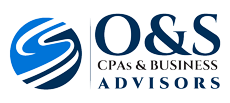At the recent ASA workshop in San Francisco for expert witnesses, James J. Mangraviti (SEAK Inc.) gave this piece of advice: “Stay in your sandbox.” Repeatedly, he cautioned participants in his two-day workshop, “How to Be a Successful and Effective Expert Witness,” not to testify outside their true area of expertise because the proposed testimony risks being found incompetent and inadmissible. When experts fail to heed this note of caution, it can spell disaster, as a recent Daubert case illustrates.
Case in point: A manufacturer of a medical system entered into a distribution agreement with the representative of various medical suppliers. The manufacturer subsequently accused the rep of engaging in unfair competition by exploiting the relationship to develop and market a similar system. The rep and the medical supply companies countered by claiming that the manufacturer committed breaches of warranty and contract. The manufacturer presented expert testimony from a CPA to support its lost profits claims, and the rep and medical suppliers offered a rebuttal expert. Both sides filed Daubert motions.
What ‘reliable business principles’? The court admitted the manufacturer’s expert but not the rep’s rebuttal expert. In his deposition, the latter admitted that he did not “understand what unjust enrichment is” or “what disgorgement is.” He said he did not know what the proper measurement of damages for unfair competition was. When asked whether lost profits represented a correct measurement, he replied: “I do understand that lost profits are a piece of the puzzle for such claims.” He admitted he did not interview the representative or any of the accountants and in his report repeated legal conclusions that the retaining counsel made to him in conversation, including calling certain determinations of the opposing expert “inappropriate and unfounded.” He also repeatedly said he based his opinions and assumptions on “reliable business principles.”
The court found that the testimony was fatally flawed. He never explained the “reliable business principles” underlying his testimony. Without specifying what methodology he used to form his opinion, his testimony was subjective belief or unsupported speculation. Also, “an expert cannot forgo his own independent analysis and rely exclusively on what an intended party tells him.” Here, the plaintiffs failed to disprove the allegation that they merely called the expert to synthesize their arguments and present them under the cloak of expert opinion, the court concluded.
Find an extended discussion of Orthoflex, Inc. v. Thermotek, Inc., 2013 U.S. Dist. LEXIS 174670 (Dec. 10, 2013), in the April edition of Business Valuation Update and at BVLaw.
